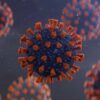A new paper publicized in the Journal of Neuroendocrinology looked at neurosteroids and their potential benefits for postpartum depression.
It is known that a specific type of neurosteroid, allopregnanolone, increases in production during gestation. But following childbirth, neurosteroid levels decrease, thus chemical imbalances suffice in the brain, yielding symptoms of postpartum depression.
A drug called brexanalone, derived from allopregnanolone, began its use in 2019 for treating postpartum depression. Such treatments paved the way for faster therapeutic effects to treat the condition, as opposed to waiting weeks for antidepressant effects from other treatments.
“In 2019, brexanolone was approved for treating PPD. A variety of synthetic neurosteroids are in clinical trials for epilepsy, depression and other brain disorders,” the research article states.
“Recent advancements in our understanding of neurosteroids have entered a new era of drug discovery and one that offers a high therapeutic potential for treating complex brain disorders.”
“Based on our extensive research spanning two decades, we have proposed and championed neurosteroid replacement therapy as a rational strategy for treating disorders marked by neurosteroid-deficiency, such as CE and other related ovarian or menstrual disorders,” researchers explained in their article.
The paper was authored by Doodipala Samba Reddy of Texas A&M University.


